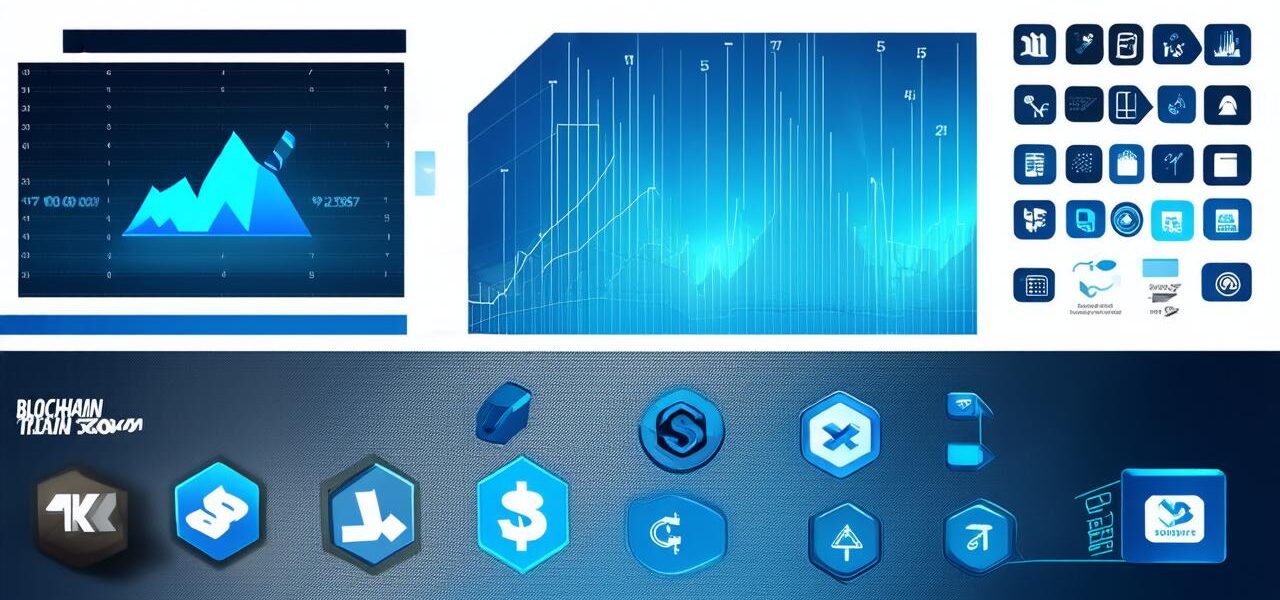
Rising Demand for Blockchain Developers: Trends and Opportunities
Blockchain technology is rapidly transforming industries ranging from finance to healthcare, supply chain management to logistics, and more. With the increasing adoption of blockchain solutions across various sectors, there’s a growing demand for skilled blockchain developers to design, build, and maintain these systems. In this article, we explore some of the trends and opportunities in the blockchain development industry, as well as the skills and knowledge that are essential for success in this field.

Blockchain Technology: The Future of Data Management
Blockchain technology is a decentralized, distributed ledger that enables secure and transparent storage of data. It provides a tamper-proof, immutable record of transactions and eliminates the need for intermediaries, making it an attractive solution for industries that rely on secure and efficient data management. The benefits of blockchain technology are numerous, including increased security, enhanced transparency, reduced costs, and improved efficiency.
The Demand for Blockchain Developers: A Growing Need
As the adoption of blockchain technology continues to grow, there’s an increasing demand for skilled blockchain developers who can design, build, and maintain these systems. According to a report by Grand View Research, the global blockchain market is expected to reach $591 billion by 2025, growing at a CAGR of 64% from 2019 to 2025. This growth is driven in part by the increasing adoption of blockchain technology across various industries, as well as the need for more advanced and complex blockchain solutions.
Skills and Knowledge Required for Success in Blockchain Development
Becoming a successful blockchain developer requires a combination of technical skills and industry knowledge. Here are some of the essential skills and knowledge required for success in this field:
-
Programming Languages: Familiarity with programming languages such as Solidity, Java, Python, and C++ is essential for blockchain development. These languages are used to build smart contracts, develop blockchain applications, and interact with blockchain platforms.
-
Blockchain Platforms: Understanding of blockchain platforms such as Ethereum, Hyperledger Fabric, and Corda is crucial for blockchain developers. These platforms provide the infrastructure for building blockchain applications and deploying smart contracts.
-
Cryptography: Knowledge of cryptography principles and algorithms is essential for understanding how blockchain technology works and securing data on the blockchain.
-
Smart Contract Development: Skill in developing smart contracts using Solidity or other programming languages is critical for creating self-executing contracts that automate business processes.
-
Cryptocurrencies: Understanding of cryptocurrencies and their underlying technology is essential for building blockchain applications that involve digital currencies.
-
Data Structures and Algorithms: Proficiency in data structures and algorithms is necessary for designing efficient blockchain systems that can handle large amounts of data.
-
Industry Knowledge: Understanding of the specific industry requirements and challenges is critical for developing blockchain solutions that meet business needs.
Case Studies and Personal Experiences
One of the best ways to understand the trends and opportunities in blockchain development is by looking at real-world examples. Here are a few case studies and personal experiences that illustrate the potential of blockchain technology:
-
The Financial Industry: JPMorgan Chase has developed a blockchain platform called Quorum, which enables secure and transparent payment processing. This platform has been used to process more than $20 billion in transactions, demonstrating the potential of blockchain technology in the financial industry.
-
Healthcare Industry: Gem, a healthcare-focused blockchain company, has developed a secure platform for storing patient data. This platform enables patients to control their own data and share it with healthcare providers as needed, improving patient privacy and reducing administrative costs.
-
Supply Chain Management: Walmart has implemented a blockchain-based system for tracking food products in its supply chain. This system provides real-time visibility into the location and condition of food products, enabling Walmart to respond quickly to any issues that arise.
-
Personal Experience: As a software developer with experience in blockchain technology, I have seen firsthand the potential of this technology to transform industries. From financial services to healthcare, blockchain has the potential to revolutionize how data is managed and shared across organizations.
FAQs
Q: What are the benefits of using blockchain technology?
A: Blockchain technology provides a secure and transparent way to store and share data, reducing costs, improving efficiency, and enhancing transparency and traceability.
Q: How does blockchain development differ from traditional software development?
A: Blockchain development requires expertise in programming languages such as Solidity and understanding of cryptography principles and algorithms, in addition to traditional software development skills.
Q: What industries are adopting blockchain technology the most?
A: The financial, healthcare, supply chain management, and logistics industries are among the most that are adopting blockchain technology.
Summary
The demand for blockchain developers is growing rapidly as more and more organizations recognize the potential of this technology to transform their operations. Blockchain development requires a combination of technical skills and industry knowledge, including programming languages, cryptography, smart contract development, and data structures and algorithms. Real-world examples demonstrate the potential of blockchain technology in various industries, from finance and healthcare to supply chain management and logistics. As this technology continues to evolve, it’s essential for organizations to stay informed about trends and opportunities in blockchain development to remain competitive.



